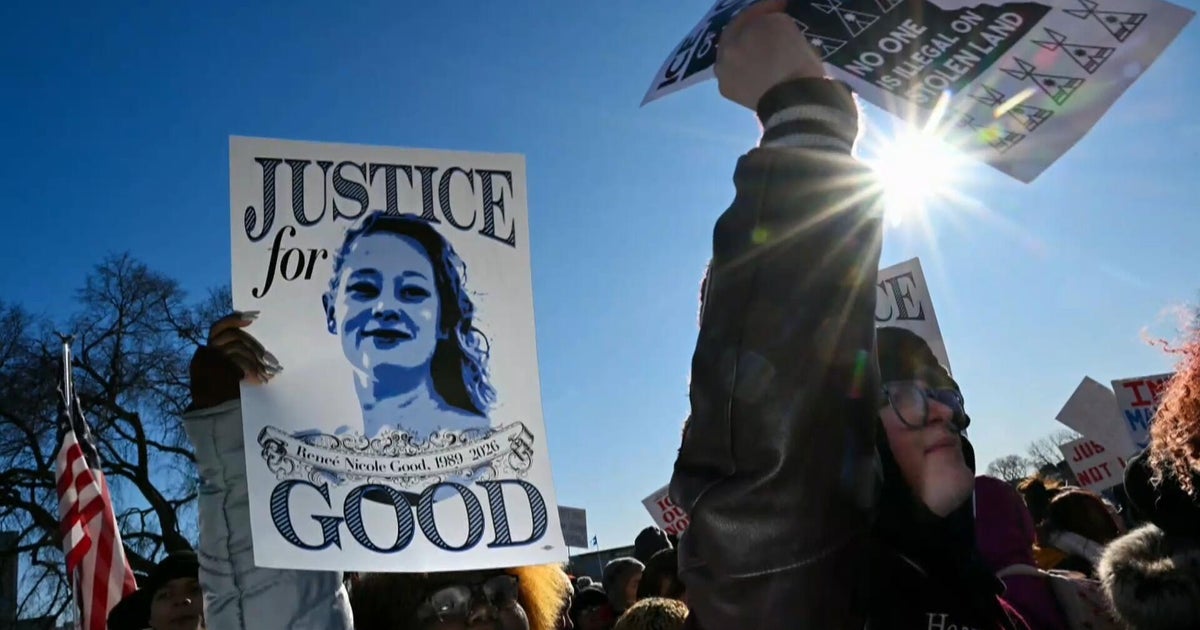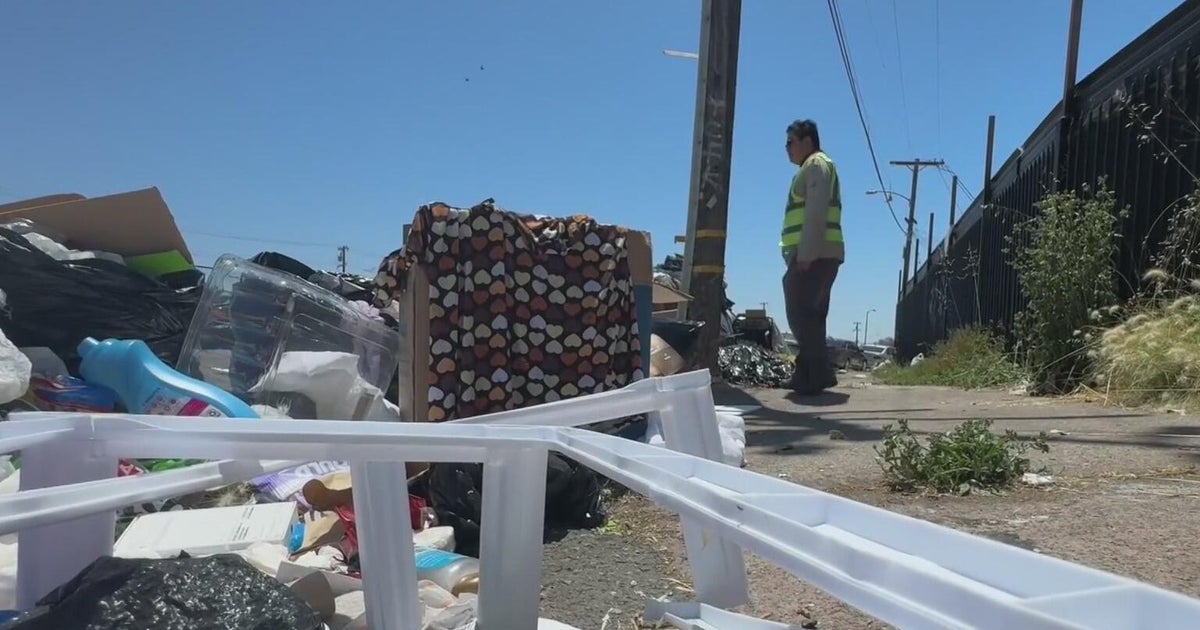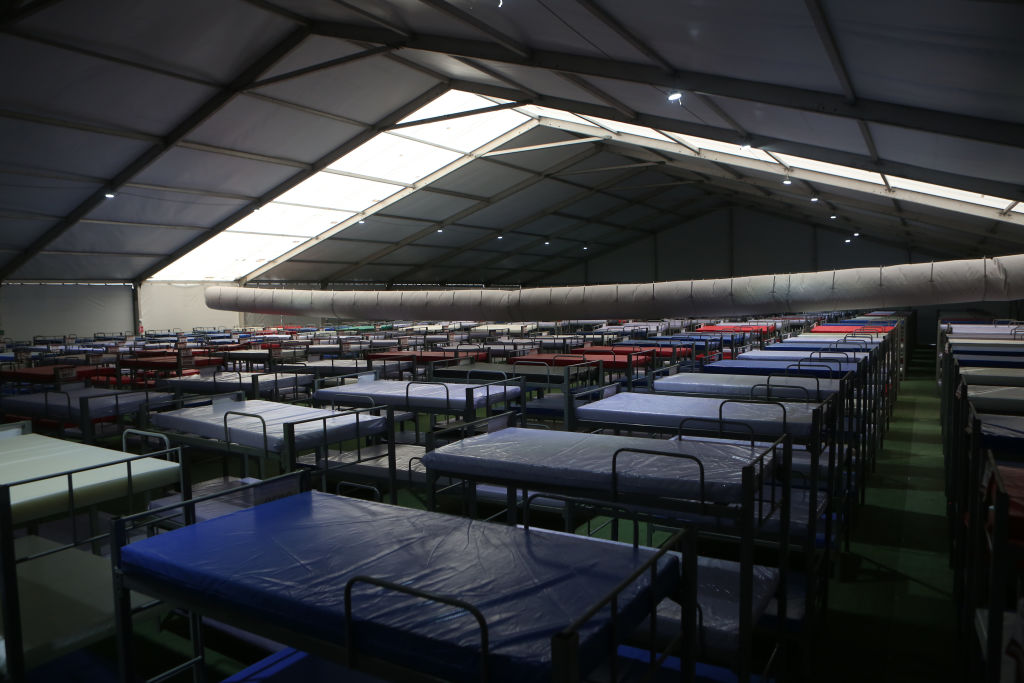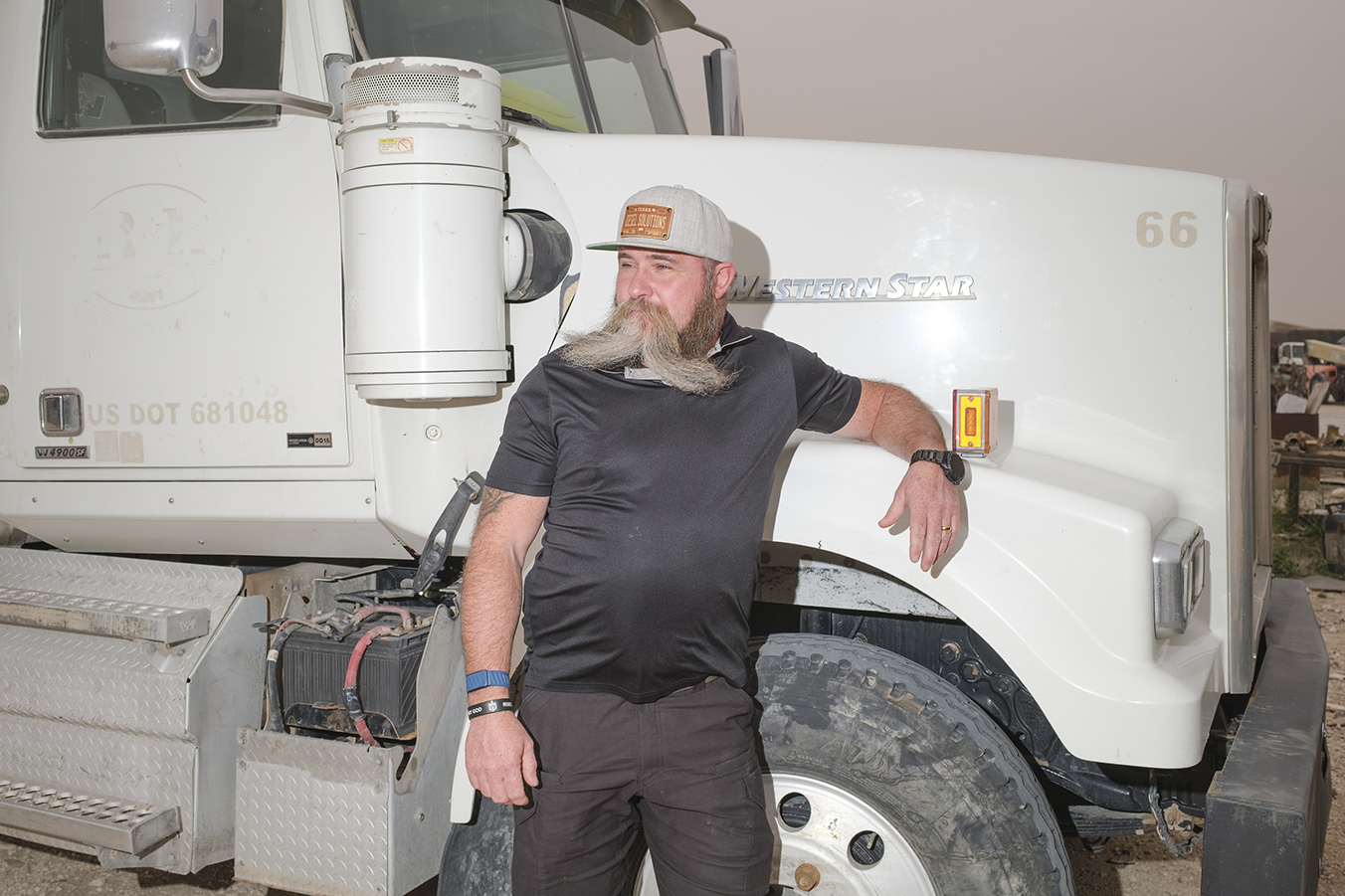Deported from the U.S., now answering your calls
Watch the new CBSN Originals documentary, "Families in Crisis: Illegal Immigration," in the video player above.
When U.S. consumers are calling about a hotel reservation or an airline flight, there's a good chance a deportee in El Salvador is on the other end of the line.
Call centers are a thriving business in El Salvador. In office buildings lined with cubbies, employees sit at computers wearing a phone headset and responding to callers' questions in clear, American-accented English. Some foreign firms, including U.S. companies, run these call centers, and they find a ready pool of English-speaking workers in the community who've been deported from the United States.
The pay isn't much, but 45-year-old Rafa Arturo doesn't have any better options. He was born in El Salvador, but his parents brought him to California as a young child and he spent most of his life in the U.S., growing up more comfortable in English than Spanish. After committing a series of crimes involving theft in the U.S., he was deported back to El Salvador in 2009. He left behind four daughters in California, and had to start over in what felt like a foreign place.
Deportees like Rafa struggle to reintegrate into Salvadoran society and culture. Like many other deportees, he was able to secure a job in one of dozens of call centers where he can speak to customers in English and share a cultural familiarity with the people he answers on the phone.
"It's one of the best ways to earn a living, as a deportee," he told CBS News.
Hundreds of thousands of Salvadorans fled to the United States during the country's civil war in the 1980s. From 1992 to 2000, many of those undocumented immigrants were repatriated back to El Salvador. Lacking fluency in Spanish, they faced prejudice and suspicion from Salvadoran society who viewed them as criminals (some of them did, indeed, bring street gang affiliations like MS-13 back with them). Many of the deportees ended up landing jobs in call centers and relying on the tight-knit community they built at work.
"The deportees in the call center were very isolated from Salvadoran society," said Nestor Rodriguez, a sociology professor at the University of Texas at Austin, who interviewed 300 deportees for a survey. "Their attitude was they were not Salvadoran like the rest of the people," he said. "They kept to themselves, celebrated Fourth of July with BBQ and beer."
Call center businesses have capitalized on this labor force. The companies have low operating costs and large tax incentives, and while they pay higher-than-average salaries for El Salvador, workers make far less than the average American. Rafa says he earns less than $2.15 an hour. But even call center salaries are not enough to get by on in El Salvador, where wages average around $10 a day. Remittances from family and friends in the states made up 20 percent of El Salvador's annual GDP in 2017, according to the World Bank.
There's little opportunity for advancement, but "that is probably the best job they're going to get," said Tanya Maria Golash-Boza, sociology professor at the University of California, Merced. Golash-Boza interviewed deportees in Latin America and the Caribbean who found work at call centers. "To break into the Latin American elite is really hard. The possibility of you breaking into management is really difficult if your family is not from that background."
There are reportedly about 70 call centers operating in El Salvador that generate about 25,000 jobs, according to PROESA, an agency that promotes investments in the country. Companies that have established call centers in El Salvador include Sykes, which is based in Florida.
"I'm talking calls from the States," said Rafa. "So far, it's all East Coast. I talk to people in Pennsylvania, New York, Connecticut, Florida."
Golash-Boza pointed out that not just any deportee can find work at a call center. They prefer workers who were brought up in the U.S. and do not have a distinguishable accent. Employees often have to contend with age discrimination and conditions like limited bathroom breaks. There is scant hope of upward mobility. But for many deportees and unemployed youths, a call center is their only chance for work in El Salvador.
Employees can get away with sporting tattoos since clients never see them in person. Visible tattoos in El Salvador can be problematic as employers and police often assume they're tied to gangs like MS-13 and 18th Street. Visible tattoos can even be fatal. Rafa says that in 2016 he was targeted and shot by a gang member because of his tattoos. When police arrived at the scene, he says they accused him of being affiliated with a gang. He had to plead with them and pull out his work badge.
Rafa doesn't see any hope of building a life in El Salvador. "It's not an option for me because I have tattoos. I'm not really scared of the people. I'm more scared of the police, the military and the gangs. It's messed up to live that way."
He continues to face stigma as a deportee. When he goes to the markets, vendors upcharge him because they consider him foreign. He said his 5-year-old son, Jacob, is singled out in school because he speaks English.
After spending a decade in El Salvador, Rafa is determined to give his son a chance to grow up in the U.S., as he did. He has grown daughters who would take the boy in. But Rafa's criminal record makes legal immigration a non-starter. Jacob was denied for a tourist visa and then a student visa, leaving Rafa to contemplate ways of getting him across the border illegally.
"I made a mistake," he said. "I'm paying for it."







